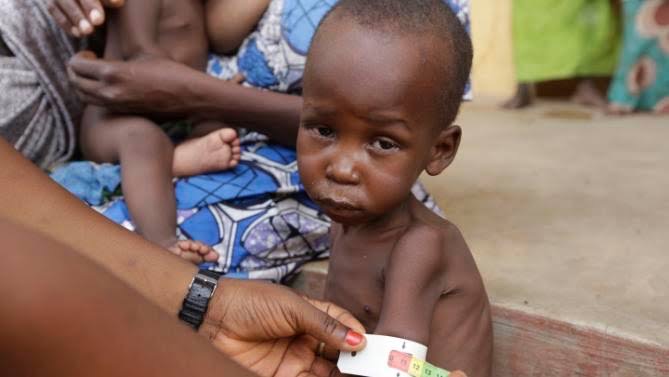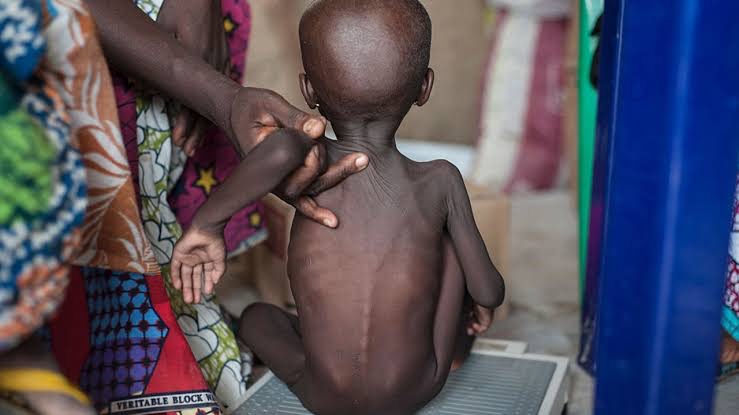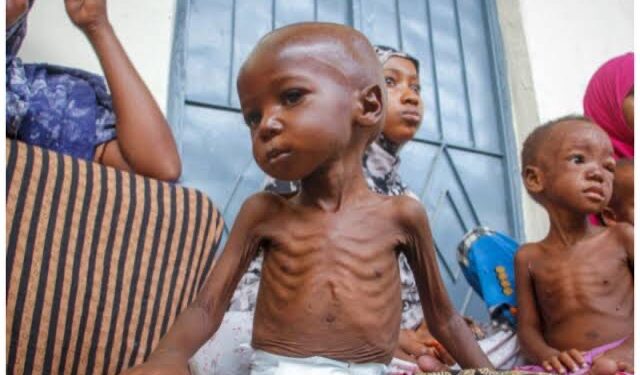The Federal Government has confirmed that more than four million children in the Northeast and Northwest regions of Nigeria are suffering from malnutrition. This alarming figure underscores the urgent need for targeted interventions to address this critical issue.
Mrs. Ladidi Bako-Aiyebusi, the Director of the Nutrition Department in the Federal Ministry of Health and Social Welfare, shared this significant update during a five-day meeting held in Keffi, Nasarawa State. The meeting, which began on Tuesday and is set to conclude on Saturday, brings together a range of stakeholders, including nutrition experts, academics, and representatives from Civil Society Organizations (CSOs).

The gathering is organized in partnership with Civil Society-Scaling Up Nutrition in Nigeria (CS-SUNN) and other nutrition-focused organizations. Its primary goal is to formulate a strategic advocacy policy aimed at improving nutrition across Nigeria. This initiative reflects the government’s commitment to addressing the country’s pressing nutrition challenges through collaborative and strategic efforts.
In her opening remarks, Mrs. Bako-Aiyebusi emphasized that the meeting is a crucial step in shaping policy directions to tackle nutrition issues effectively. She highlighted the severe malnutrition crisis currently facing Nigeria, which is characterized by a “triple burden” of issues: widespread deficiencies in both macro and micronutrients, undernutrition, and overnutrition. These problems have significant repercussions for both public health and socio-economic development.

According to the 2021 National Food Consumption and Micronutrient Survey, nearly 4.4 million children in the Northeast and Northwest regions are affected by malnutrition. This statistic is a stark reminder of the scale of the problem and the urgent need for comprehensive solutions.
Several factors contribute to this crisis; Inadequate access to sufficient and nutritious food is a primary cause, poor dietary practices, including improper feeding and caring practices, further exacerbate the issue. Economic and political structures also play a role, as do low economic status, inadequate health-seeking behaviors, and insufficient education among the population.
The Federal Ministry of Health and Social Welfare, along with its partners, aims to use the insights gained from this meeting to develop actionable policies and programs that address these root causes of malnutrition.
By improving food access, enhancing dietary practices, and addressing economic and educational barriers, the goal is to significantly reduce malnutrition rates and improve overall child health and development in the affected regions.
The meeting represents a critical step in the broader effort to combat malnutrition in Nigeria, demonstrating a proactive approach to one of the country’s most pressing public health challenges. The collaborative nature of this initiative highlights the importance of joint efforts between government agencies, civil society, and other stakeholders in addressing and resolving complex health issues.


































